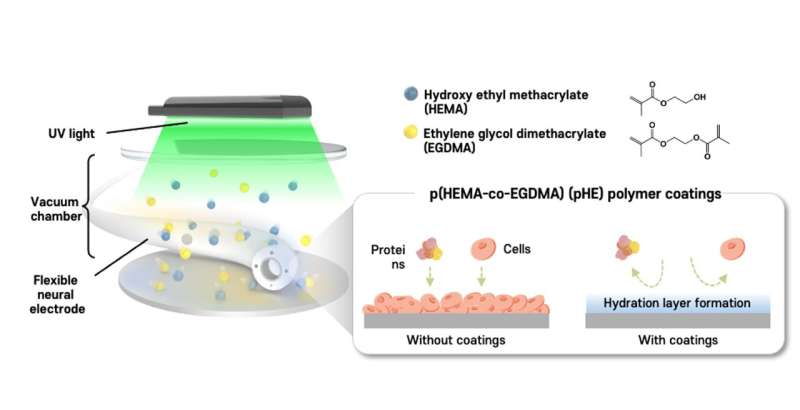To properly understand and treat such conditions, it is essential to continuously monitor the electrical signals exchanged by neurons deep inside the brain. However, conventional electrodes lose functionality within one month due to inflammation and scar tissue formation after implantation, limiting their use in long-term research and therapy.
A research team led by Dr. Hyejeong Seong at the Brain Convergence Research Division of the Korea Institute of Science and Technology, in collaboration with Prof. Seongjun Park at Seoul National University, has developed a coating technology that extends the lifespan of implanted electrodes from one month to over three months. This achievement establishes a foundation for stable, long-term recording of brain signals, greatly broadening opportunities for both neuroscience research and clinical applications.

